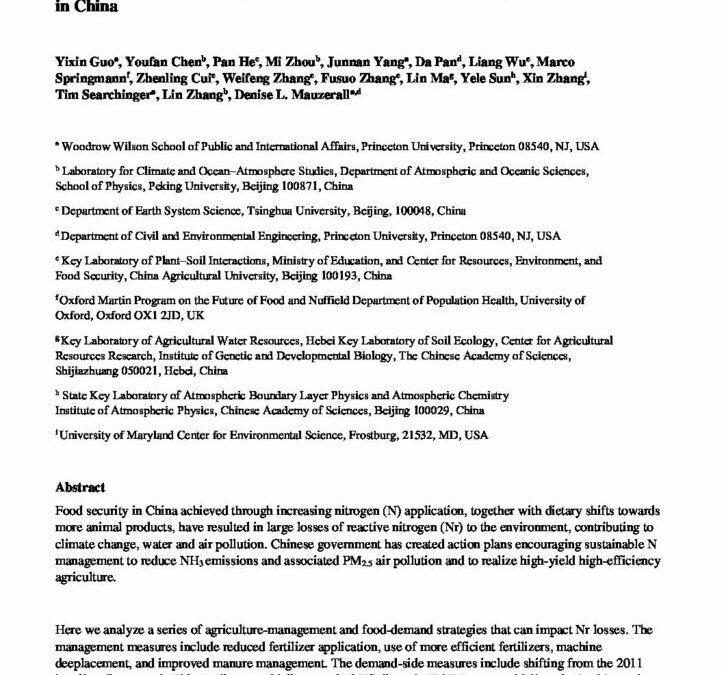Mitigating Reactive Nitrogen Loss and Associated Environmental Damage: Opportunities from Changes in Food Production

Food security in China achieved through increasing nitrogen (N) application, together with dietary shifts towards more animal products, have resulted in large losses of reactive nitrogen (Nr) to the environment, contributing to climate change, water and air pollution. Chinese government has created action plans encouraging sustainable N management to reduce NH3 emissions and associated PM2.5 air pollution and to realize high-yield high-efficiency agriculture.
Here we analyze a series of agriculture-management and food-demand strategies that can impact Nr losses. The management measures include reduced fertilizer application, use of more efficient fertilizers, machine deeplacement, and improved manure management. The demand-side measures include shifting from the 2011 baseline diet towards China’s dietary guidelines, typical US diets, the EAT-Lancet guidelines for healthy and sustainable diets, and replacement of red meat by soy. For each strategy, we use a process-based model of NH3 emissions and a coupled meteorology-atmospheric chemistry model (WRF-Chem) to evaluate resulting changes in NH3 emissions and PM2.5 air quality. We use additional data to quantify the impacts of improved N management on grain yield, NO3 – -leaching and runoff, N use efficiency, and greenhouse gas emissions (GHGs),
